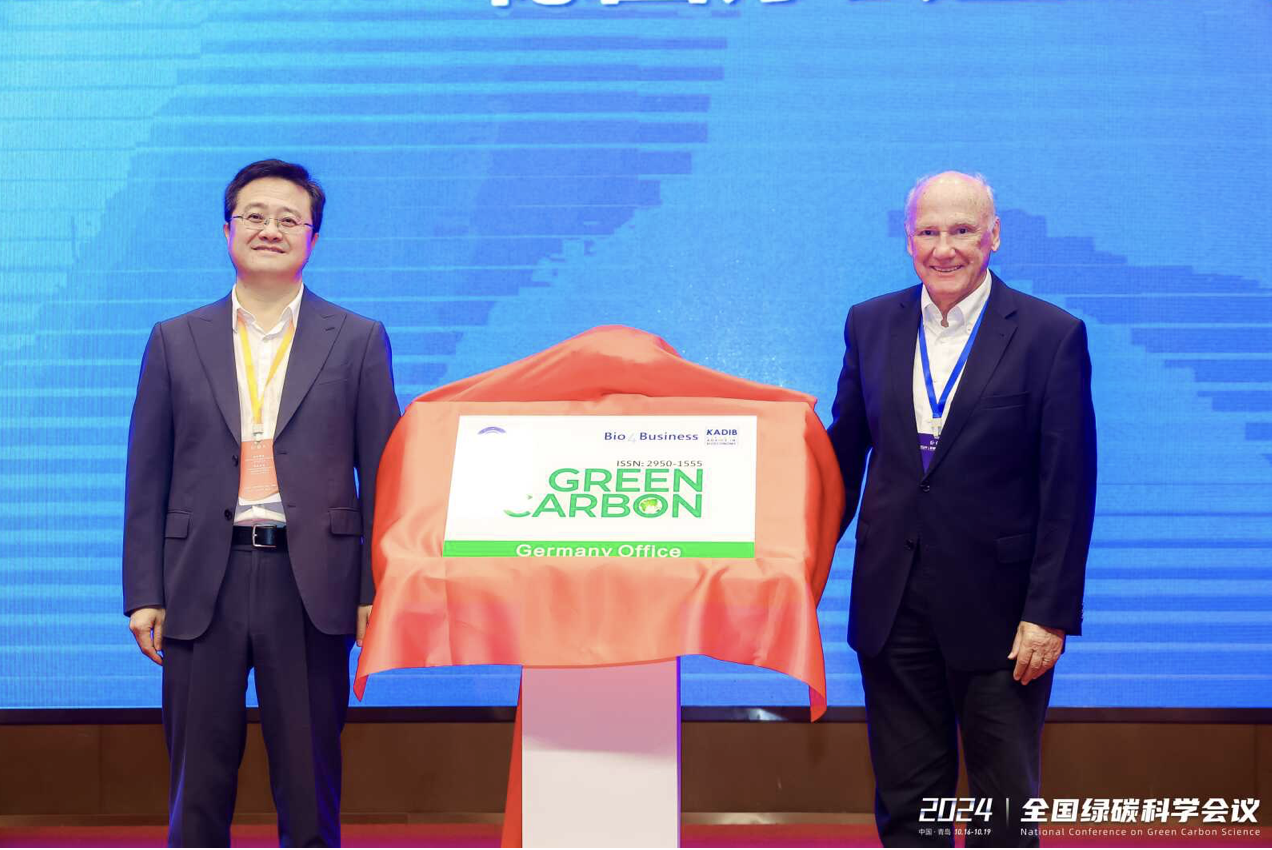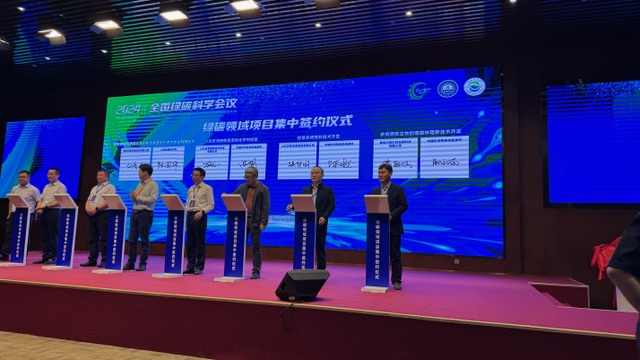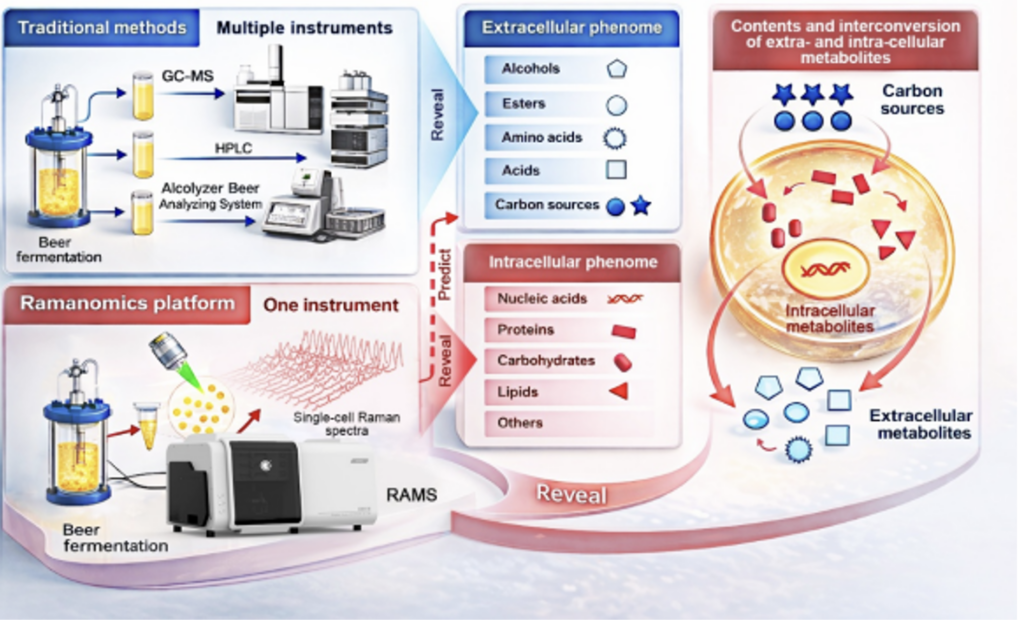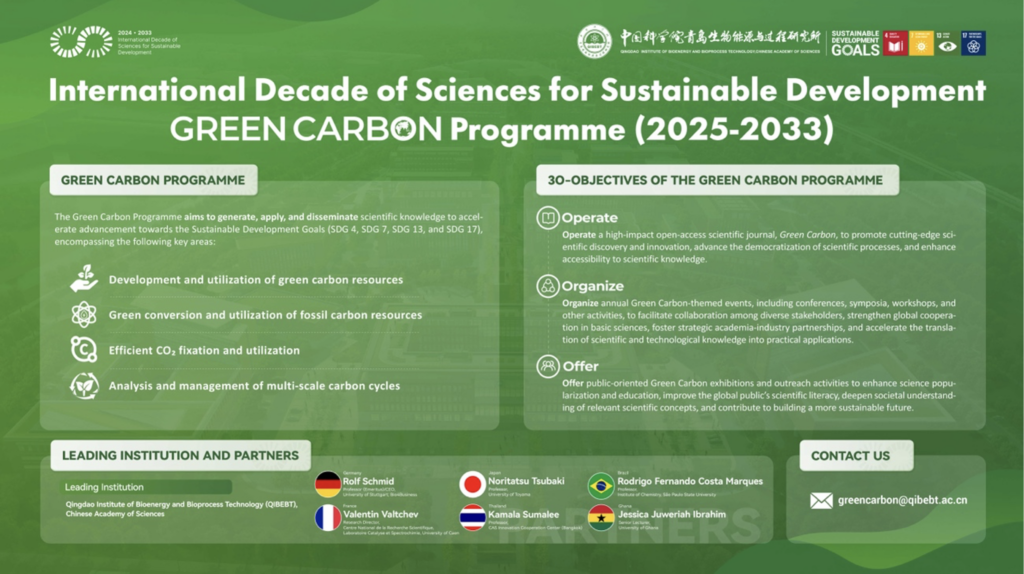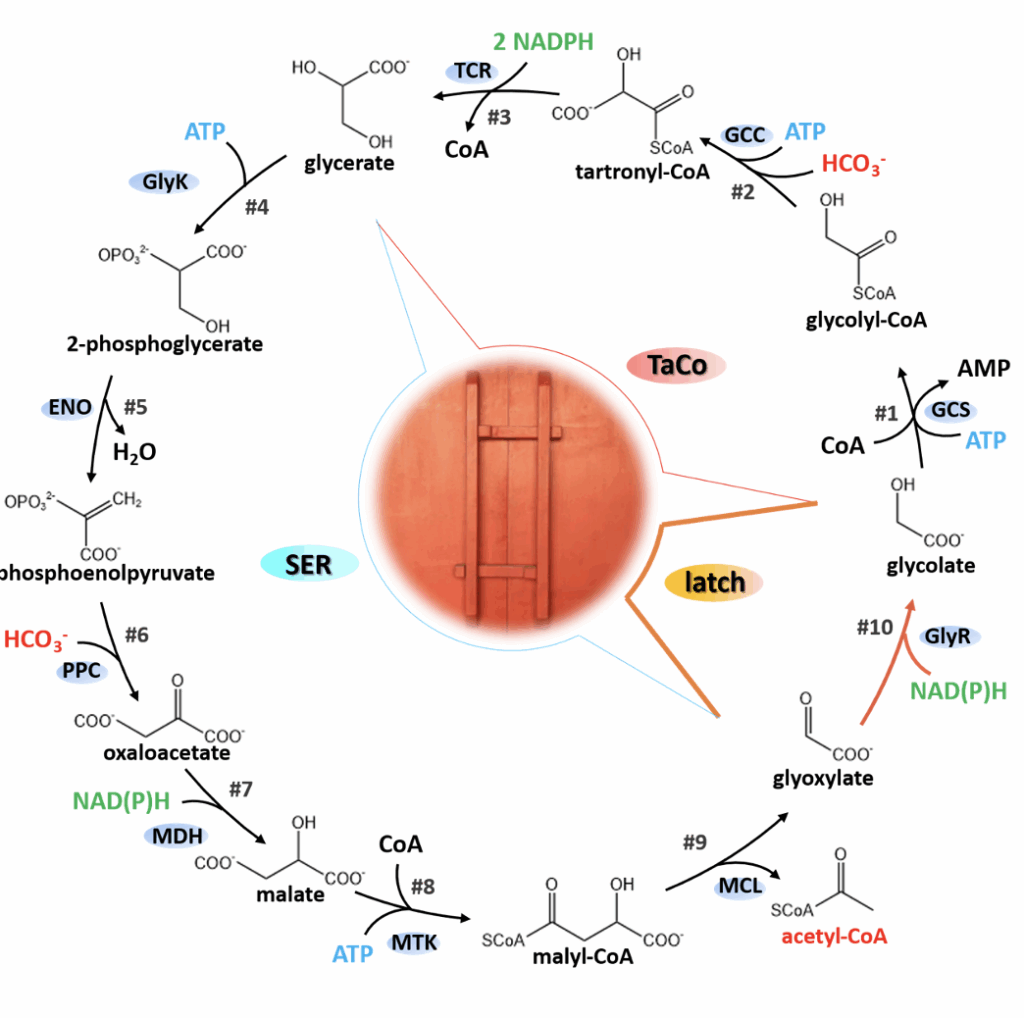http://qibebt.cas.cn/news/zyxw/202410/t20241017_7402455.html
From October 17 – 19, the first birthday of the journal was celebrated with a conference to which over 100 scientists attended.
Signing ceremony of the Qingdao Synthetic Biology Technology Innovation Strategic Alliance
T the conference theme was “Innovation of green and low-carbon technology, empowering carbon peak and carbon neutrality”, focusing on carbon resources, low-carbon conversion technology, multi-energy integration and utilization and other fields for in-depth discussions. The conference invited more than 100 experts, scholars, and business people to attend the conference.
As the chairman of this conference, QIBEBT director and Green Carbon editor-in-chief Lv Xuefeng said that this conference aims to build a high-level exchange platform for scientific research in the field of green and low-carbon research across the country. Breakthroughs will be sought in perovskite photovoltaics, solid-state lithium batteries, biosynthesis of energetic materials, green bio-jet fuel, new generation of bio-based green plasticizers, and iron-branched butyl-pentane rubber. In order to further expand China’s academic influence in the field of green and low-carbon science and technology, the international academic journal Green Carbon aims to promote scientific and technological innovation in the field of sustainable development and provide a high-quality and open academic exchange platform for global researchers in the field of green and low-carbon.
At the meeting, the “Qingdao Synthetic Biology Technology Innovation Strategic Alliance” jointly established by the Qingdao Institute of Energy and relevant enterprises, universities and research institutes was formally established. Qingdao Wanyuan Environmental Technology Co., Ltd., Shandong Jinzhirui New Materials Development Co., Ltd., Shandong Environmental Protection Development Group Co., Ltd., Qingdao Zhongchuanghuike Biotechnology Co., Ltd., Qingdao Zhongke Green Carbon Technology Co., Ltd., Shandong Hengxin Group Co., Ltd., Qingdao Zhongke Yuanben New Energy Co., Ltd., and China Hydrogen Energy Company (Energy Cube (Qingdao) Data Technology Co., Ltd.) signed contracts with the Institute respectively.
The conference also held a special event for the first anniversary of the publication of the international journal Green Carbon. Jiang Lei and Lv Xuefeng presented the “Excellent Editorial Board Award” to Rolf Schmid, Tang Yong, Chen Xuesi and Lv Xuefeng presented the “Excellent Young Editorial Board Award” to 24 young editors, and Rolf Schmid and Lv Xuefeng jointly unveiled the Green Carbon Overseas (Germany) Office.
